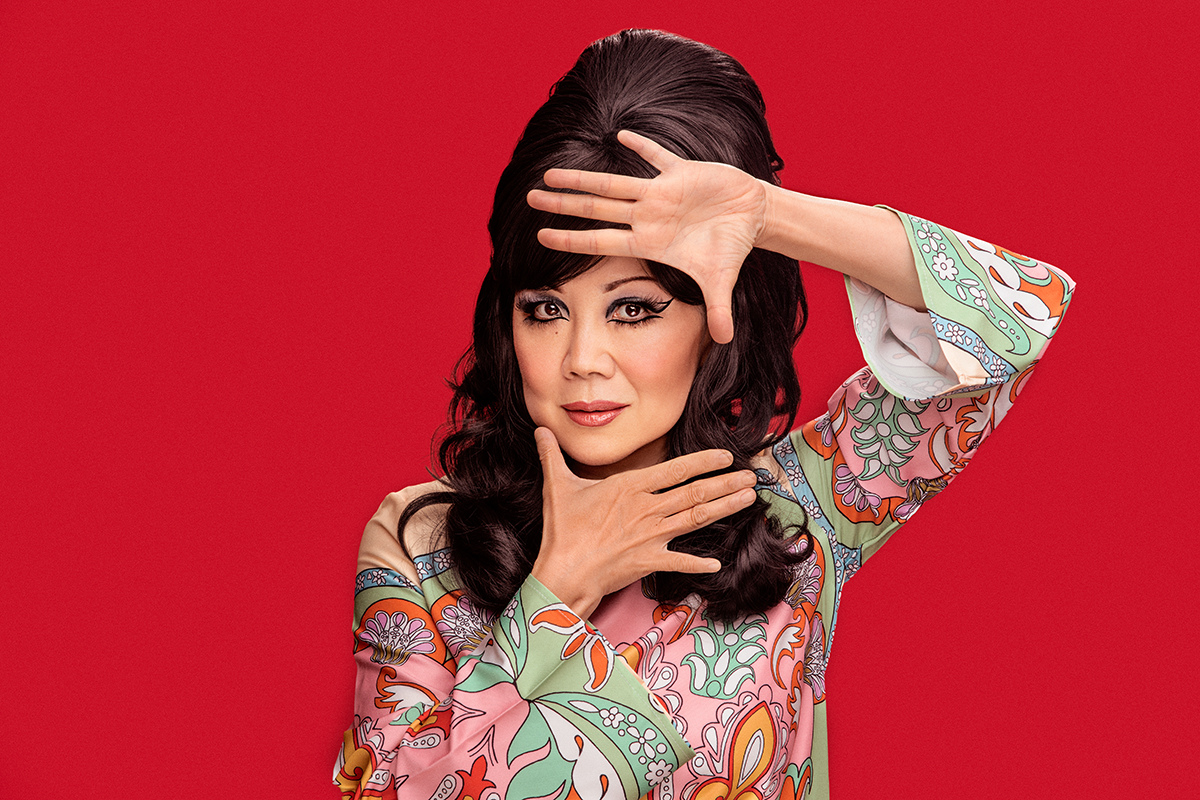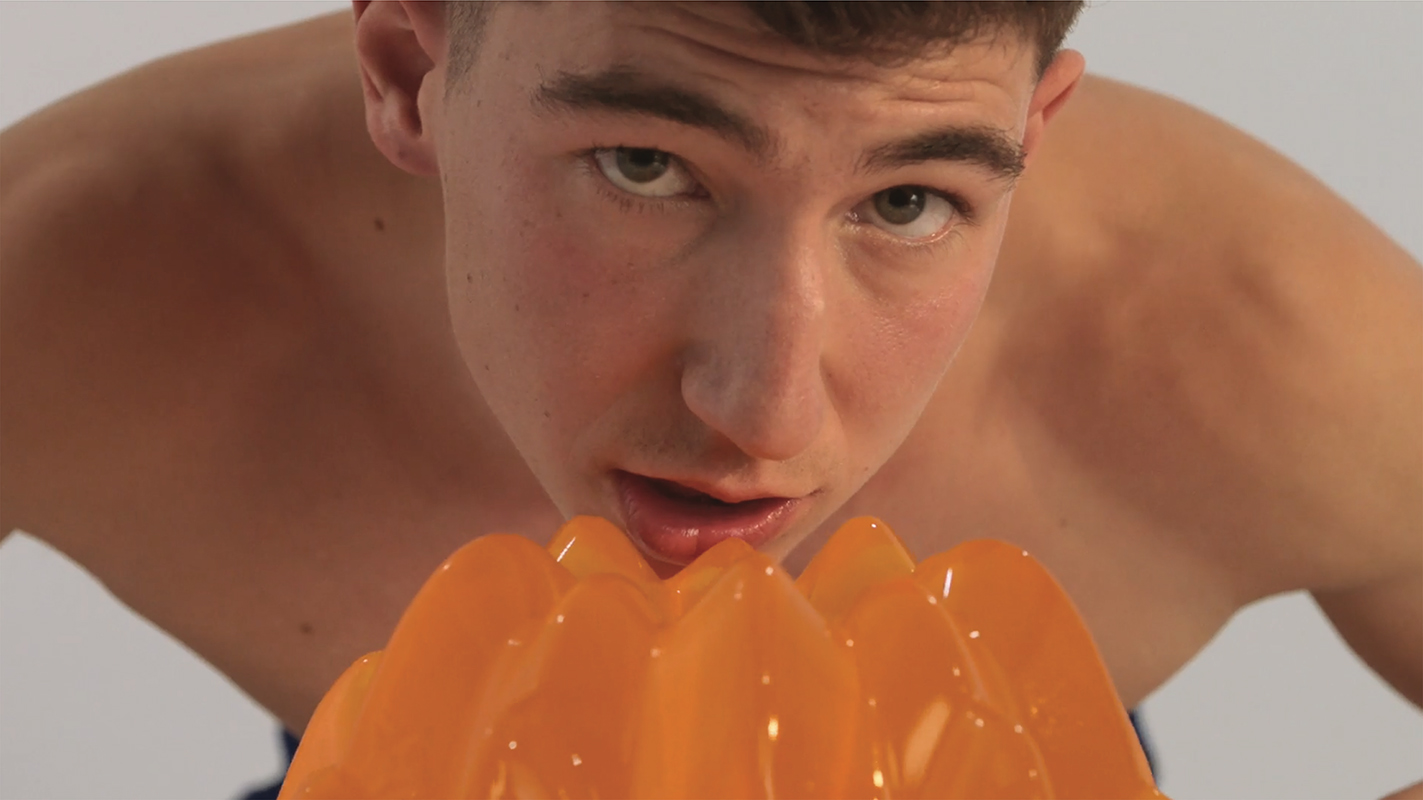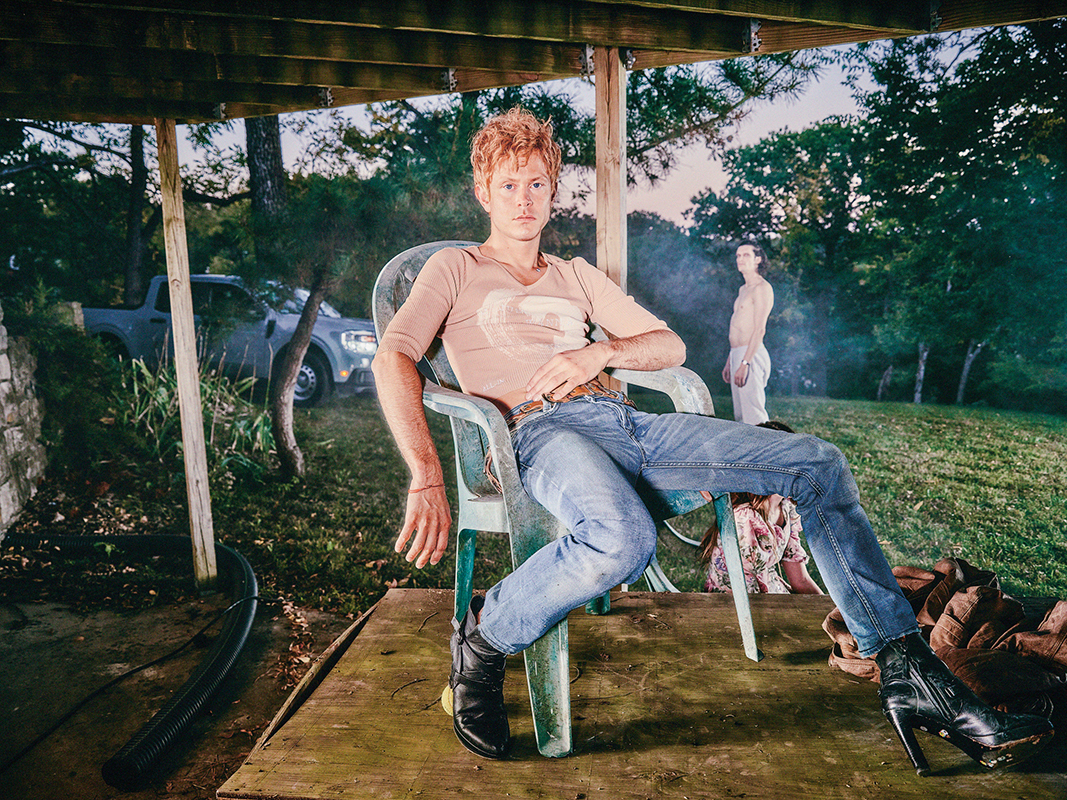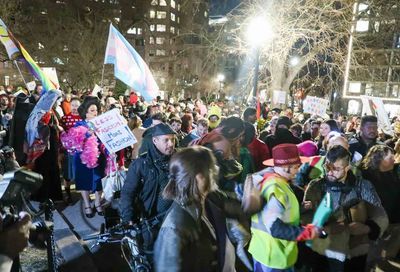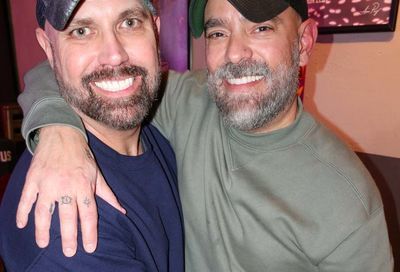Cho-Zen
Margaret Cho reaches toward wisdom as she sharpens her edge with moderation

Margaret Cho
(Photo by Miss Missy Photography)
MW: Would you consider parenthood yourself?
CHO: Yeah. It’s always a possibility. I’m a little bit older now, so I don’t know, physically, if I would do it. I’ve never had that much trust in my own body to be able to let go in the way that pregnancy really needs. That’s always been something that’s very scary to me. But it’s always possible. I don’t know. I feel like we can feed that impulse and still be maternal towards the world, be kind of a mother figure for everyone, which is a great thing to do.
MW: You’re kind of reminding me of Annie Sprinkle.
CHO: It’s very Annie Sprinkle. It’s very goddess-y.
MW: Another bit of family, I want to ask about your marriage, because you’ve described it as very conventional, but also very unconventional. What’s your marriage like?
CHO: We’re just very close. We’re definitely family. We don’t have a feeling of, like, we have to be monogamous and we have to be exclusive. But, at the same time, that’s sort of what it ends up being.
When you have those freedoms in place, when you have that philosophy in place, it almost never really gets utilized or exercised or whatever. It ends up like I don’t even care. I have everything I need. It’s funny. It’s like you have the freedom to do whatever you want, but it doesn’t really matter, because you just sort of want to stay home. At least in my experience.
MW: That reminds me of when I stopped smoking. If it was forbidden, I’d fixate. But as long as I’m simply choosing not to smoke at nearly any given time, no big deal.
CHO: Yeah. It’s like dieting, too. When you’re saying, “I’m only going to eat this,” and then you start to get really freaked out because you can’t have certain things. It becomes obsessive. But if you allow yourself to kind of have whatever, it ends up kind of balancing out.
MW: That goes back to your experience with All-American Girl. You’ve said that after the show was canceled, with all you were put through, you had a difficult time with drugs and alcohol. How did you navigate that?
CHO: There was identity, too. Trying to figure out, “What am I supposed to do?” You put a lot of importance on the way other people — or an entity, like a studio or a network — can validate your work, and it’s really more about what we can do, what we can communicate. That was more important for me to figure out, that I didn’t need an entity to validate what I did. I didn’t need somebody else to say that it was good. I had to find that within myself.
MW: But with substance abuse, specifically, how did you deal with that?
CHO: I had definite phases of being super self-destructive. But I always found food to be way more difficult — either bulimia or anorexia — than substances or drinking. But you go through these programs for sobriety and you find out what your “core issue” is. This is where I felt my problems were, mainly — that if I was drinking or doing drugs, it was mainly so that I could not eat. Or so that I could eat. Or something. So that I could control hunger.
Everybody’s got their own issues. Gambling or shopping or whatever. There’s sort of an addictive thing that happens to everyone. It’s a very difficult thing to deal with. Happens a lot in your 20s, for a lot of people.
MW: So, you can go for a beer after a show, for example?
CHO: Oh, totally. Of course. There are all these different paths to ecstasy. That’s certainly a journey on its own.
MW: Have you sort of channeled that energy into your many projects?
CHO: You hope to channel some of that into something else. Maybe it’s just being more productive, taking all that energy and putting it into creating. But I’m sure that there are things I definitely need to address. I’m kind of not in any idea of staying away from things. I’m trying to be moderate as much as I can. It’s easier to achieve as I get older.
MW: Have you achieved balance?
CHO: I’m trying to get to balance. I’m trying to get to peace. Maybe that’s through work or art or something — but that’s the goal.
MW: Mentioning beer has me thinking of the beer garden that just opened in my neighborhood, and that they were offering free beers to furloughed employees during the shutdown. You’re also very political. Did the shutdown grab your attention?
CHO: Oh, my God. I don’t understand what it means, exactly. Especially because things seemed to be going so well for LGBT rights. This is a good time to shut down? I don’t get the shutdown. It seemed so weird.
MW: Where are you putting your political attention these days?
CHO: It’s always going to be with different LGBT causes. I’m looking at the community and how we can do things for the “BT” part. The bisexual and transgender parts of the LGBT are often overlooked. I really hope that we can pay more attention. That’s a great place to start. I would like to see more, especially for transgender youth.
MW: It’s fair to say you’re bisexual, right? Have you experienced biphobia? Or gay people who want to dismiss the “T”?
CHO: That’s right, I’m bisexual. And, yeah, it’s disturbing and it’s weird and I see it all the time. It’s something we definitely need to deal with. It is almost like a family struggle, and needs to be dealt with sensitively.
MW: Looking beyond the U.S., do you tour much outside the country?
CHO: I do! I’m actually going to Europe to tour all these different countries I haven’t been to. Norway, Switzerland…. That’s going to happen in December. I’m doing more international touring, which is great.
MW: Have you been following what’s going on in Russia? The call to boycott the Olympics?
CHO: You want to find a way to make it easier for the LGBT community that lives there, to help them have a voice, to have them feel that the world cares about them. It would be great to play for the community there.
MW: It might be dangerous. Your material might get you arrested. The law is so vague.
CHO: But you think because you’re coming as sort of an ambassador of goodwill that would protect you to some extent, because they do seem to be concerned about their image to the point of looking at the world, wanting to be a world power, having the Olympics. But if you want to be that, you have to have human rights, you have to have civil rights.
MW: So, at this stage in your life, 44, you’re taking on some new travels. What else is fueling your interest?
CHO: I try to be creative, to write and make music and grow. I try to do things that are inspiring. There is a lot to learn about. That’s a big journey.
MW: Is it okay to lose some edge as you age? Is this the stage where you get a gig writing a travel log for some high-end lifestyle magazine?
CHO: It certainly depends on the kind of person you are. I think it would be fun to do all of it. The most political thing for me would be to be the most mainstream, because that would be sort of a different choice. There are a lot of different ways to be and grow and be political and do your thing. But it would be fun to do that, too, to do the vanilla thing.
MW: Okay, we’ll have a spa day!
CHO: Yes! [Laughs.]
Support Metro Weekly’s Journalism
These are challenging times for news organizations. And yet it’s crucial we stay active and provide vital resources and information to both our local readers and the world. So won’t you please take a moment and consider supporting Metro Weekly with a membership? For as little as $5 a month, you can help ensure Metro Weekly magazine and MetroWeekly.com remain free, viable resources as we provide the best, most diverse, culturally-resonant LGBTQ coverage in both the D.C. region and around the world. Memberships come with exclusive perks and discounts, your own personal digital delivery of each week’s magazine (and an archive), access to our Member's Lounge when it launches this fall, and exclusive members-only items like Metro Weekly Membership Mugs and Tote Bags! Check out all our membership levels here and please join us today!




